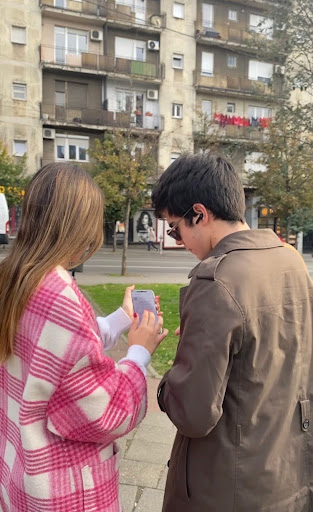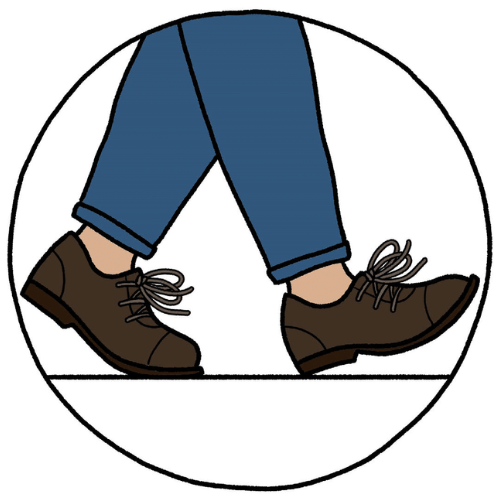Project Description:
Urban500, led by the Placemaking Western Balkans, is a citizen science-driven initiative with a clear mission: to start constructing a robust open database on the quality of pedestrian spaces in the densely populated areas of the Balkan cities. The initiative will evaluate walkability within a 500-step radius, which equals an average of 15 minutes of walking, the basis of the “15 minutes city” concept.
The project will address three key challenges in the Balkans cities: Rapid deterioration of walkability due to excessive car dependency Declining physical and mental health caused by the lack of pedestrian-friendly public spaces “data desert” situation, which hinders a comprehensive understanding of the needs of diverse groups of pedestrians, especially those who walk the most: children, women, and the elderly. The collaboratively generated data will capture and visualise diverse user perceptions of streets, squares and parks in everyday life.
Project Type: Kickstarting Grant
Theme: Sustainable Lifestyles, Mobility
Mentor: Carolina Dopico González
Empowering Communities Through Citizen Science: Measuring Walkability with Urban500
Walkability is an essential urban function, directly influencing public health, social interaction, and environmental quality. Many cities in the Balkans and Southeast Europe face challenges in creating pedestrian-friendly environments, as prioritizing car traffic over walkable public spaces has been the predominant urban policy. Placemaking Western Balkans, an independent urban experts’ think tank, aims to bring this issue to the attention of policymakers and other urban professionals by deploying citizen science methods to visualize and provide evidence-based data on the current state of walkability.
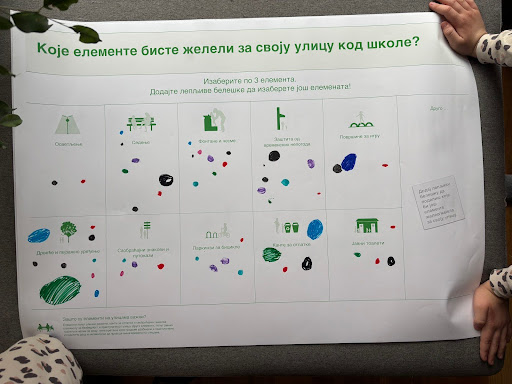
In Belgrade’s Vračar neighbourhood, Placemaking Western Balkans has launched an innovative citizen science project called Urban500, supported by the IMPETUS4CS programme. The title refers to measuring the quality of pedestrian spaces within a radius of 500 steps—approximately a 15-minute walk covering about 300 meters. The initiative leverages technology and community engagement to evaluate walkability, empowering citizens to shape their urban environment actively.
The Urban500 Approach
Urban500 consists of a digital tool (a web app) designed to capture pedestrians’ experiences over 500-step distances during their daily walks, along with an online platform for visualizing and utilizing the open data collected by citizens: urban500.eu. Using the app’s Scoreline method, citizen scientists rate key elements of walkability, such as safety, aesthetics, livability, and greenery.
The project was piloted in Vračar, a neighborhood struggling with increasing car traffic dominance, which threatens the quality of its public spaces. By systematically collecting data, the initiative aims to highlight areas needing improvement and advocate for more pedestrian-friendly urban design. The Placemaking Western Balkans team conducted preliminary desktop research and interviewed local policymakers before engaging directly with citizen scientists. This helped them understand the role of citizen science in walkability within European and local contexts, ensuring the tool’s impact. Outreach campaigns targeted young academics, local neighborhood social services, interest groups (NGOs), and elementary schools.
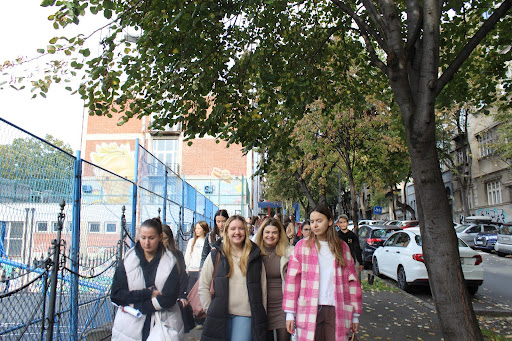
Citizen Science in Action
In October 2024, 40 young citizen scientists took to the streets of Vračar for the Urban500 Field Day. Equipped with the app, they measured and assessed multiple 500-step trajectories across the neighbourhood. Their efforts were complemented by four volunteers who conducted interviews with 47 residents and visitors of local shops, adding qualitative insights to the collected data. Additionally, the team held an in-person workshop with schoolchildren from the Vladislav Ribnikar School, ensuring diverse user groups participated in the measurements.
The results were visualised on Google Maps, creating an interactive, data-driven picture of walkability in the area. By cross-referencing feedback with anonymized demographic details such as age, profession, and gender, the project uncovered diverse perspectives on both positive and negative aspects of walkability, along with suggested areas for improvement.
From Data to Action
The insights gained from Urban500 provide a foundation for impactful change. Placemaking Western Balkans uses this data to identify specific gaps in public space design and develop actionable policy recommendations for improving streets and walkways. Young citizen scientists provided feedback on the methods and experiences during a separate workshop. Their findings will contribute to the final project phase—an open workshop in December 2024—where they will meet urban professionals and other stakeholders to discuss results and refine citizen science tools and methods. The project will conclude with the creation of visual art posters based on the collected data, helping communicate results to broader audiences.
By engaging citizens directly, the initiative fosters a sense of ownership and collective responsibility for urban spaces. It bridges the gap between citizens and urban planners, showcasing the power of collaboration in addressing complex challenges like sustainable mobility.
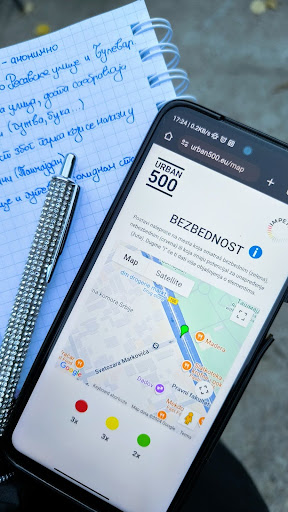
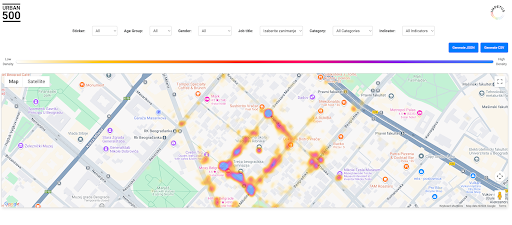
A Broader Vision
Urban500 is more than just a tool; it initiates a shared open-data platform on pedestrian spaces and walkability across the region. It also serves as an awareness campaign to promote evidence-based urban planning through citizen science—currently underutilized in the region. Supported by the IMPETUS program, Placemaking Western Balkans has gained valuable insights into conducting robust, community-driven research. This program helped refine citizen science methods, ensuring quality, inclusivity, and ethical research on a locally underdeveloped topic while highlighting the need for collaboration between citizens and academics.
The organisation plans to expand the project in 2025, gathering data in additional neighbourhoods and engaging new groups of citizen scientists. The collected data will be made publicly available, encouraging further analysis and collaboration. This transparency builds trust and inspires other cities to adopt similar approaches, working with Placemaking Western Balkans experts.
Looking Ahead
As Urban500 grows, its impact will extend beyond Belgrade. By combining digital innovation, community engagement, and data-driven advocacy, it sets a model for other cities seeking to prioritize pedestrians in urban planning. Walkability is not just a technical challenge; it’s a shared aspiration for healthier, more connected communities. With initiatives like Urban500, the path to achieving this goal becomes clearer—and more inclusive—one step at a time.
